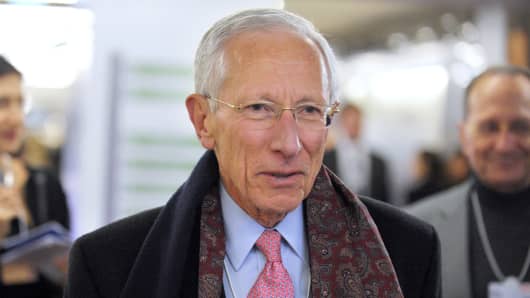But before anyone gets too excited, it's only fair to say that Fischer's role in the Israeli economic boom isn't even half the story. Indeed, none of what Israel has accomplished and continues to achieve would be possible without sound tax policy.
And what Israel has done with this policy is nothing short of astounding for those with any knowledge or memory of that nation's long socialist and welfare state history.
Just last week, reporters at the Israeli business newspaper Globes, dug deep into the latest Organization for Economic Co-operation and Development report on the rising tax burdens across the world.
And there they found a surprise: Israel's tax burden is almost the lowest of all 34 OECD countries and it's falling the fastest. The average Israeli worker has a 20.7-percent tax rate, down from 30 percent in 2000; the current OECD average is 36 percent.
Read MoreTechnology a job killer? Not for these companies: Carol Roth
The tax system is also remarkably progressive: Families with two working parents and two or more children have the second lowest average tax burden, (14.3 percent), in the entire OECD. A single mother earning 2/3 the national average salary has a minuscule average tax burden of just 1.5 percent on her earnings.
At the same time, Israel's GDP has doubled to its current $250 billion mark, exceeding that of neighboring Egypt which is a nation with 10 times the population and many more natural resources.
The man clearly most responsible for all of this is current Israeli Prime Minister Benjamin Netanyahu.
It was Netanyahu who reformed the pensions, liberalized the private sector with cuts in regulation, and began the tax-cutting policies, all during what many expected to be his political exile as finance minister from 2003 to 2005.
Now back in the prime minister's office for the last five years, Netanyahu has continued his policy of pushing more private corporate ownership and he's even engaged in some successful Teddy Roosevelt-style trust-busting, breaking up some of the de facto monopolies in the national economy.





